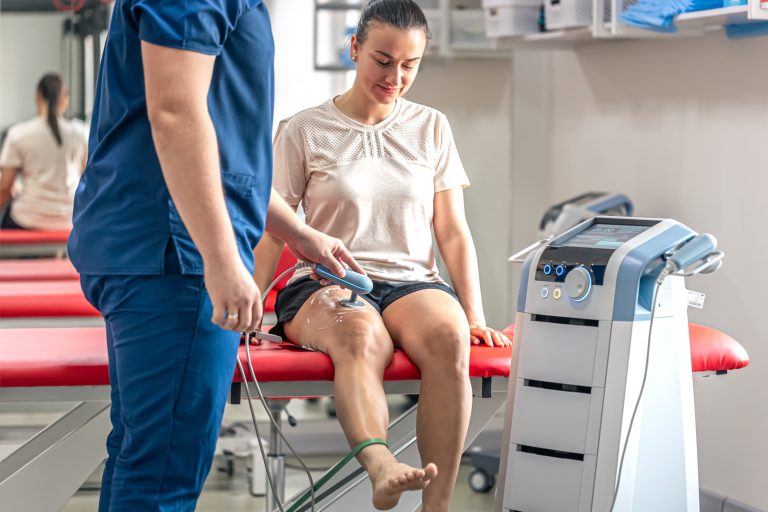As we age, maintaining spinal health becomes increasingly important. At Spinal Recovery Center, located at 2243 East 12 Mile Road, Warren, Michigan 48092, we understand the unique challenges that aging poses to the spine. Understanding these challenges and taking proactive steps can help you maintain a healthy spine well into your later years.
How Aging Affects the Spine
As we grow older, natural changes occur in the spine that can impact its function and health:
- Degeneration of Discs: The intervertebral discs, which act as shock absorbers between the vertebrae, naturally lose hydration and elasticity with age. This degeneration can lead to conditions such as herniated discs and spinal stenosis, where the space within the spine narrows, putting pressure on the nerves.
- Osteoarthritis: The breakdown of cartilage in the spinal joints can lead to osteoarthritis, a common condition in older adults. This can cause pain, stiffness, and decreased mobility, particularly in the lower back and neck.
- Bone Density Loss: Aging often leads to a decrease in bone density, particularly in women after menopause. This can increase the risk of vertebral fractures, which can lead to chronic pain and a hunched posture known as kyphosis.
- Reduced Muscle Mass: As muscle mass declines with age, the muscles that support the spine weaken, making the spine more susceptible to injury and pain. Maintaining muscle strength is crucial for spinal support and overall mobility.
Tips for Maintaining Spinal Health as You Age
- Stay Active Regular physical activity is one of the most effective ways to maintain spinal health as you age. Engage in low-impact exercises such as walking, swimming, and yoga to keep the spine flexible and strong. Strength training exercises can also help maintain muscle mass and bone density.
- Focus on Posture Poor posture can exacerbate spinal problems, especially as you age. Pay attention to your posture when sitting, standing, and lifting. Keeping your spine aligned reduces stress on the vertebrae and discs. Ergonomic adjustments to your workspace and regular posture checks can prevent pain and discomfort.
- Maintain a Healthy Weight Carrying excess weight puts additional strain on the spine, particularly the lower back. Maintaining a healthy weight through diet and exercise can reduce this strain, lowering the risk of spinal injuries and degenerative conditions.
- Practice Good Nutrition A diet rich in calcium, vitamin D, and other nutrients is essential for maintaining bone health and preventing osteoporosis. Ensure your diet includes plenty of leafy greens, dairy products, and fortified foods, and consider supplements if necessary.
- Stay Hydrated Hydration is vital for maintaining the health of the spinal discs. Drinking enough water helps keep the discs supple and reduces the risk of disc degeneration. Make hydration a daily priority, especially as dehydration can become more common with age.
- Regular Check-Ups Regular visits to a healthcare provider can help detect spinal issues early and prevent them from worsening. At Spinal Recovery Center, we offer comprehensive spinal assessments to monitor changes and address issues before they become serious problems.
Treatment Options for Age-Related Spinal Issues
Even with the best preventive measures, age-related spinal conditions may still occur. At Spinal Recovery Center, we offer a range of treatment options tailored to the needs of older adults:
- Physical Therapy: Customized physical therapy programs can help strengthen the muscles supporting the spine, improve flexibility, and reduce pain. These programs are particularly beneficial for managing conditions like osteoarthritis and spinal stenosis.
- Chiropractic Care: Gentle chiropractic adjustments can help realign the spine, reduce pain, and improve mobility. Chiropractic care is a non-invasive treatment option that can complement other therapies.
- Spinal Decompression Therapy: For conditions like herniated discs, spinal decompression therapy can relieve pressure on the nerves and discs, providing pain relief and improving function.
- Pain Management: If you’re experiencing chronic pain, our pain management specialists can offer a variety of treatments, including medication, injections, and other non-invasive techniques, to help manage and reduce pain.
Aging doesn’t have to mean living with chronic spinal pain or reduced mobility. By taking proactive steps and seeking the right care, you can maintain a healthy spine and enjoy an active, fulfilling life. If you’re concerned about your spinal health as you age, visit Spinal Recovery Center at 2243 East 12 Mile Road, Warren, Michigan 48092. Our experienced team is here to provide personalized care and support for all your spinal health needs. Contact us today to schedule a consultation and learn how we can help you keep your spine healthy at any age.




